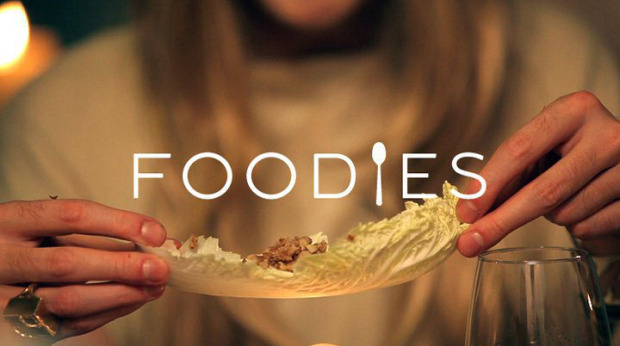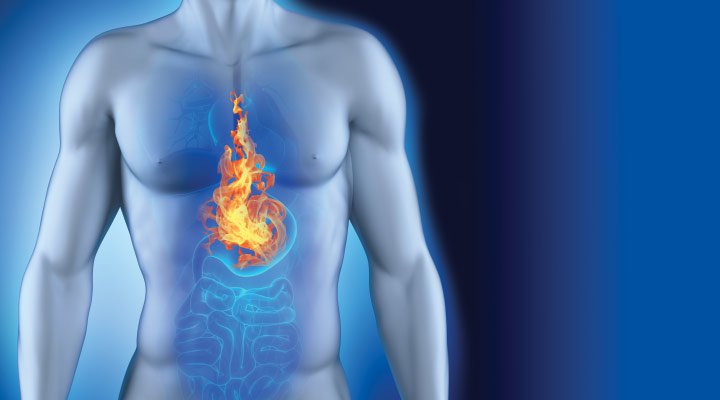Tagged: digestion
Foodie vs. Age
The world is currently populated with a large percentage of food loving adults, called “foodies.” People who love to eat, cook and/or explore the myriads of foods and recipes that can be found all over the world. As woman in her 50’s raised by a woman who was a foodie before the term was coined, I love and appreciate unique restaurants or dishes and of course pairing fine wine with my meals as well. But as a women in her 50’s I am also experiencing a dichotomy to my love of food that lately has me quite annoyed.

First is the fact that I am a fitness professional (Certified Personal Trainer and Nutrition Expert) and because of that I simply cannot just hang out and eat everything I want to whenever I want to. Even though I am not so strict with my nutrition that I can’t indulge in comfort foods or high-caloric meals on occasion (after all moderation is my mantra), I still feel wrong indulging in exquisitely prepared seven course meals or conversely enjoying cheese nachos at the movies. I worry that I’m sabotaging my fitness goals.

Second, and worse for a foodie – I find that my digestive tolerance has changed and lately I can’t handle rich foods or too much wine like I used to. Everything from acid reflux, to sour stomach, or cramps and bloating seems to follow whether we’ve had a fancy night out or a dinner party with friends.

The irony is that while around the age of 50, most of us can finally afford to explore foods and restaurants more than we could in our 20’s, and that our pallets are finally the most developed, we also find that our bodies can’t always process certain foods or quantities like they used to.

So what can a foodie do when the body rebels? The answer for me has been to slow down. We spend so much time rushing around, it translates to eating as well. Take time when eating. Chew slowly, let the enzymes in your mouth do their job. Pay attention to all the nuances of the foods or wines you’re consuming – be in the moment by taking your time and really experiencing the meal. Sip the wine, talk with those around you, and let your body relax while you enjoy the meal.

When not indulging in explorations of new restaurants or recipes (i.e., eating every day foods), always remember to keep your nutrition balanced with lots of fiber and water, keep your quantities small, chew or swallow enzymes on a daily basis and most importantly, savor your food. Food is nourishment and life, but it is also art and a joy when handled properly – at any age!

Tastebuds & Your Brain
We humans are the only creatures living on Earth who have elevated our need for sustenance to something close to worship. We obsess over food, turn it into art, and attach emotional elation to substances that pass over our tongue and into our system. The downside of this food obsession is that we actually give up much of our self-control to one of the tiniest parts of our bodies – the taste buds.

Taste buds are tiny microscopic hairs that send messages to our brains detailing how something tastes – i.e., bitter, sour, sweet or salty. Our brains then send us a message back (and this is where we differ from all other creatures save for maybe primates) and somehow we’ve assigned emotions to those messages. Food was not designed to be a vehicle for emotions, yet we humans combined the two nonetheless.

The problem is that we forget that WE are in charge – not our minds, not our tastebuds – and so we indulge and indulge and indulge. With so many foods being processed with sugars and salts that electrify the tastebuds and then the brain, we find it difficult to stop eating what tastes soooo good! Because of this, America in particular has suffered the worst affects from these over-indulged tastebuds, as we have the highest rates of child and adult obesity in the world!

Now scientists, nutritionists, and personal trainers like myself have been telling the masses for sometime that if you give yourself 5-10 minutes after completing a moderate sized meal or snack, that gnawing message from your brain to eat more WILL cease.

Our amazing systems also initiate a message from our stomachs to our brains when we are full. However, unlike the hyper tastebud the stomach’s signals cruise at a much slower speed, there’s a lot going on in the digestive track after all. Thus if you wait the recommended 5-10 minutes, the message finally gets through and the brain tells the tastebuds to calm down – we’re full.

So the next time you relish that decadent chocolate dessert or delightfully salty bag of chips, remember that your tastebuds are NOT in charge. Moderation is key, and after a few weeks of this “retraining” you’ll find the reward in your waistline!
